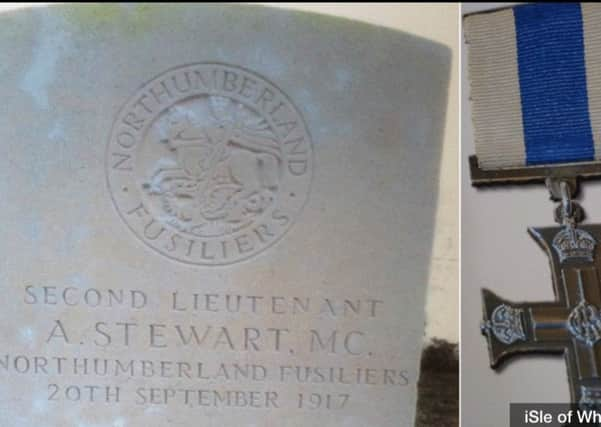Tribute to Christian soldier


That decision cost him his life 100 years ago this month.
Although there were close to a million of them, every single one of the British troops who fell in that conflict represented an individual tragedy, and each had their own story of how they came to make the ultimate sacrifice.
However, the circumstances leading to the death of the Reverend Andrew Stewart on September 20, 1917, in the bloody Third Battle of Ypres are possibly unique.


Advertisement
Hide AdAdvertisement
Hide AdBorn the son of a Carluke joiner in 1887, he overcame the usual class barriers of the day by being accepted by Glasgow University to study for a divinity degree.
He was ordained at what was then the Isle of Whithorn United Free Church, now part of the Church of Scotland, in January 1914, so when war was declared later that year, Andrew found himself in the enviable position of being in what was a reserved occupation.
As a member of clergy, he was exempt from service even when the call-up was introduced later in the war.
However, to the consternation of his kirk session, he insisted he was joining up and going to war, and as a soldier, not a clergyman, although he could have opted to become a non-combatant Army chaplain.


Advertisement
Hide AdAdvertisement
Hide AdHe was duly commissioned as a second lieutenant in the 10th Battalion of the Northumberland Fusiliers.
The fact that he was posthumously awarded the Military Cross “for conspicuous gallantry leading his men” proves that, despite his original calling, Andrew was no meek and mild Christian soldier at the front.
He was one of 20,255 british soldiers to perish in the third Ypres battle and rests to this day in Larchwood Cemetery in Zillebeke, Belgium.
The anniversary of his death, at the age of 30, last week was marked by a special service at Whithorn.
Advertisement
Hide AdAdvertisement
Hide AdThe original kirk session minute recording his fateful decision to fight was read out, as was the official War Office telegram sent back to Scotland telling of his loss.
There were also special poems and readings in his memory.
And there will forever be a reminder of this unique clergyman where he once preached as his old kirk has a memorial tablet in homage to him, and its baptismal font is dedicated to him too.